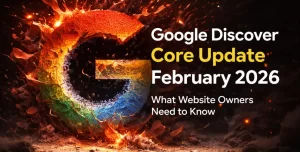
OpenAI vs. Chrome: Is the AI-Powered Browser the Future of Web Surfing?
Table of Contents
Introduction
Welcome to WikiGlitz!
In this blog, we bring you an exciting breakdown of how OpenAI is stepping into the web browser space—and what that means for the future of how we surf the internet.
Google Chrome has been the default choice for millions across the world, but with the rise of intelligent tools like
ChatGPT, GPT-4, and AI-driven assistants, the time has come to ask: Can an AI-powered browser change the game?
In this article, we’ll answer some of the most relevant questions around OpenAI’s browser plans and explore how it may challenge traditional browsers like Chrome.
Key Takeaways
- OpenAI is reportedly working on its own AI-powered browser, aiming to make web experiences more intelligent and interactive.
- Integration with GPT-4, openai chatbots, and tools like Azure openai will make browsing more conversational and personalized.
- The project could reshape how users engage with websites, making search more intuitive than ever before.
What is OpenAI’s AI Browser, and Why is It Making Headlines?
OpenAI, known for its generative AI models like GPT-3 and GPT-4, is reportedly developing a next-gen browser designed to offer a more interactive, AI-assisted experience. Unlike traditional browsers like Chrome or Firefox, this new tool would integrate AI deeply into the browsing experience, transforming how we search, read, and interact online.
This browser is expected to:
- Use AI chatbots like GPT-4 to answer queries directly
- Offer content summarization, intelligent suggestions, and predictive browsing
- Act more like a digital assistant than a passive tool
In simple terms, this browser could merge search with conversation, removing the need to sift through 10 links to find one answer.
How is OpenAI’s Browser Different from Google Chrome?
While Google Chrome is fast and efficient, it relies heavily on manual search behavior. You type in a query, and it returns results based on SEO and ranking algorithms.
OpenAI’s AI browser could:
- Deliver smooth, human-like responses powered by GPT-4, with potential upgrades to future models like GPT-5.
- Integrate with openai chatbot technology for two-way interactions
- Use AI to prioritize content that matches the user’s intent, not just keywords
This shift would make search feel more like a conversation than a transaction, completely reshaping user expectations.
What Role Do GPT-4 and GPT-3 Play in This?
The foundation of OpenAI’s browser lies in its powerful AI models. GPT-4 brings a major leap in reasoning, response accuracy, and context understanding compared to GPT-3.
These models allow the browser to:
- Understand complex queries and user intent
- Summarize long articles
- Translate and localize content on the fly
- Offer real-time feedback on user prompts
So instead of just serving links, the browser could deliver knowledge instantly.
Will It Replace ChatGPT or Complement It?
The AI browser will likely complement tools like ChatGPT rather than replace them.
While ChatGPT works in a chat-style interface, the openai browser could embed those capabilities into everyday browsing, making every site you visit “AI-aware.”
Expect features like:
- In-browser AI assistants
- Reading summaries
- Voice-command support via AI chatbot GPT integrations
Can You Trust an AI Browser with Your Data?
A major concern for users is privacy. With openai stepping into browsing, the question arises: how will data be handled?
While no official statements have been made, openai may follow the privacy-first model that has gained popularity in response to growing data concerns.
Using cloud-based AI like Azure OpenAI, the company could:
- Store less personal data locally
- Encrypt usage behavior
- Limit ad-tracking compared to browsers like Chrome
That said, users should always be cautious about permissions and data-sharing policies once the browser launches.
Is This Going to Affect OpenAI Stock or Investment Opportunities?
While openai is currently a private company and not listed on public exchanges, there’s growing interest in “ openai stock” or “open ai stock” searches.
If openai eventually launches an IPO, this browser move could significantly boost investor confidence, especially as:
- The browser market is massive, currently led by giants like Google and Apple.
- AI browsing is still an untapped vertical.
- Enterprise-level partnerships like Azure openai continue to grow.
For now, investors keep a close eye on companies collaborating with OpenAI, like Microsoft.
What Is the Relevance of Azure OpenAI in This Context?
Azure OpenAI, Microsoft’s integration of openai models into its cloud platform, plays a huge role in scaling AI access.
For the AI browser, Azure could:
- Provide cloud-based AI computation power
- Support fast, secure processing of user requests
- Allow seamless integration with business tools, learning platforms, and enterprise applications.
This partnership allows openai to focus on AI innovation while Microsoft handles cloud infrastructure and global distribution.
How Can Users Benefit from an AI-Powered Browser?
Here are some benefits users can expect:
- Faster answers to questions—no more clicking through multiple links
- Better accessibility through voice, summaries, and translations
- Personalized experiences, where the browser adapts to your preferences
- Smarter research with integrated note-taking and content organization
- Reduced distractions—no pop-ups, fewer irrelevant ads, and focused content
Whether you’re a student, researcher, business owner, or casual browser, the OpenAI browser could become your productivity partner.
What Is “open ai com” and How Does It Fit In?
Many users search for open ai com thinking it’s a browser or search engine. In reality, it redirects to OpenAI’s official website (openai.com), where all tools like ChatGPT, DALL·E, and API documentation are hosted.
Once the browser launches, openai.com will likely serve as the official download and info portal for the AI-powered browser.
Conclusion
The battle between openai and Google Chrome isn’t just about speed or extensions—it’s about how we access knowledge.
With the rise of AI models like GPT-4, new use cases like AI chatbot GPT, and the power of Azure OpenAI, the future of web browsing looks conversational, smart, and deeply personalized.
Welcome to WikiGlitz — we hope this guide helped you understand how openai is reshaping the future of web surfing.
Follow WikiGlitz for more such insights on AI, technology, and digital transformation.
Frequently Asked Questions (FAQs)
1. Is OpenAI really building its own web browser to compete with Google Chrome?
Yes, reports suggest that openai is working on an AI-powered browser that could offer a more conversational and intelligent browsing experience, potentially challenging Chrome’s dominance.
2. How will OpenAI’s browser use GPT-4 or GPT-3 models?
The browser is expected to integrate GPT-4 and GPT-3 to deliver real-time answers, content summaries, and interactive search experiences, moving beyond traditional link-based search results.
3. Will the OpenAI browser replace ChatGPT?
No, the browser will likely complement ChatGPT by embedding its capabilities into daily browsing tasks, making websites smarter and interactions more seamless.
4. Is there a way to invest in OpenAI or buy OpenAI stock?
Currently, openai is not publicly traded, so direct investment isn’t possible. However, companies like Microsoft—which partners with openai via Azure OpenAI—offer indirect exposure.
5. How will the AI browser impact user privacy and data usage?
While official details are pending, it’s expected that openai will emphasize user privacy and secure data handling, possibly leveraging cloud services like Azure OpenAI to ensure minimal local data storage.
Want to keep up with our blog?
Our most valuable tips right inside your inbox, once per month.
WikiGlitz Team
Welcome to WikiGlitz, your ultimate destination for tech insights and innovation. Our expert team is dedicated to delivering free resources and professional advice on various technology topics, including Artificial Intelligence, Cyber Security, Cloud Computing, and more. We strive to empower our readers with up-to-date information and practical guidance, ensuring you stay ahead in the rapidly evolving tech landscape. At WikiGlitz, we are passionate about making complex technology accessible to everyone. Our team of seasoned experts curates content that is both informative and engaging, helping you understand and leverage the latest tech trends. Whether you're a tech enthusiast or a professional, WikiGlitz is your go-to source for reliable, expert-driven content. Join us on this journey to explore and embrace the future of technology.





